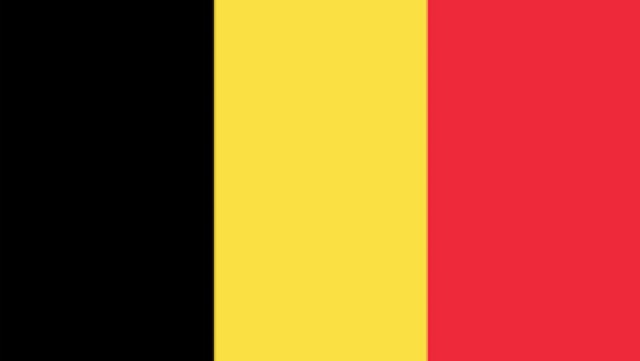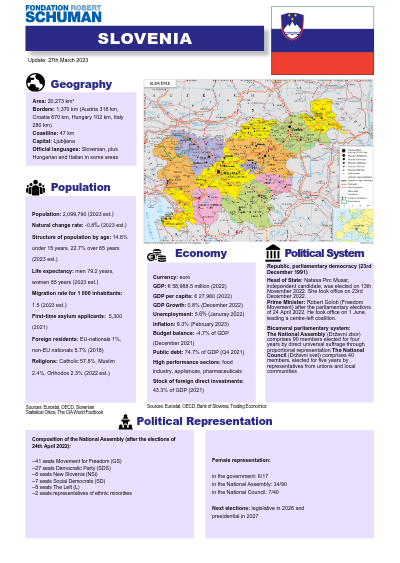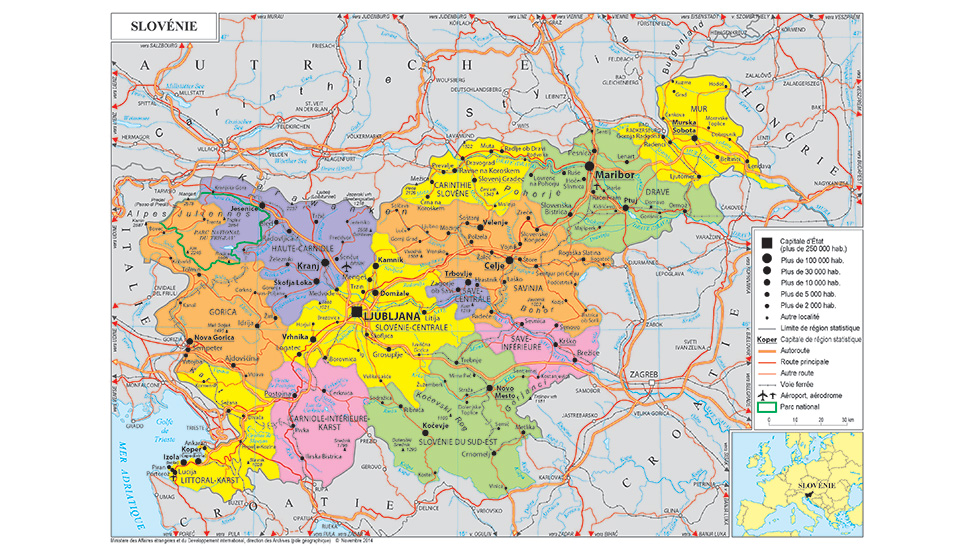
Geography
Area : 20,273 km²
Borders : 1,370 km (Austria 318 km, Croatia 670 km, Hungary 102 km, Italy 280 km)
Coastline : 47 km
Capital : Ljubljana
Official language : Slovenian, plus Hungarian and Italian in some areas
Flag
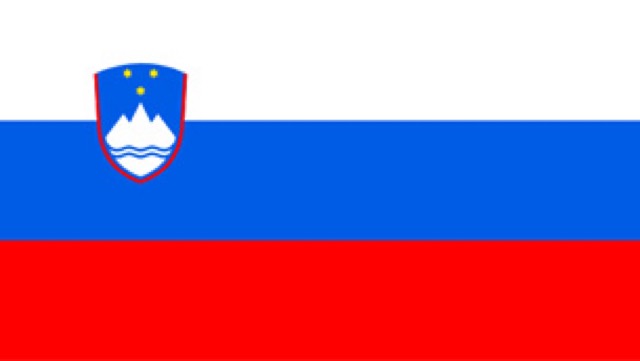
Population
Population : 2,117,948 (2024 est.)
Crude natural change rate : -2.1‰ (2023)
Population repartition: 14,3% under 15 years old, 23,2% over 65 years old (2024)
Foreign residents: EU-nationals 1%, non EU nationals 7% (2021)
Crude net migration rate: 1.5‰ (2024)
First time asylum applicants: 5,465 (2024)
Life expectancy: men 79.4 years, women 85,2 years (2024)
Religions: Catholic 69%, Orthodox 4%, Muslim 3%, other Christians 1%, others 5%, Atheist 14%, Agnostic 4% (est. 2019)
Source : Eurostat, Slovenian Statistical Office, CIA World Factbook, Worldometers
Economy
Currency: Euro
GDP: € 66,968 million (2024)
GDP per capita (PPS): € 25,380 (2024)
GDP growth : 1.6% (2024)
Inflation: 2.3% (November 2025)
Public debt: 67% of GDP (Q4 2024)
Unemployment: 4.5% ( September 2025)
Stock of foreign direct investment from the entire world: 35% of GDP (2023)
Performance sectors: food industry, appliances, pharmaceuticals
Budget balance: -0.9% of GDP (2024)
Source : Eurostat, OCDE, Bank of Slovenia, Trading Economics, Données mondiales
Political system
Republic, parliamentary democracy (23rd December 1991)
Head of State: Nataša Pirc Musar, independent candidate, was elected on 13th November 2022. She took office on 23rd December 2022.
Prime Minister: Robert Golob (Freedom Movement) after the parliamentary elections of 24 April 2022. He took office on 1 June, leading a centre-left coalition.
Bicameral parliamentary system: The Državni zbor (National Assembly) comprises 90 members elected for four years by direct universal suffrage through proportional representation. The Državni svet (National Council) comprises 40 members, elected for five years by representatives from unions and local communities
Political representation
Composition of the National Assembly (in December 2024):
- 40 seats Svoboda (Movement for Freedom)
- 24 seats SDS (Slovenian Democratic Party, national-conservatism)
- 8 seats NSi (New Slovenia, Christian Democratic Party)
- 7 seats SD (Social Democrats)
- 5 seats Levica (Left, ecosocialists)
- 4 seats Non-attached members
- 2 seats for Italian and Hungarian minorities
Women's representations
- in the government: 7/20
- in the National Assembly: 32/90
- in the National Council: 7/40
Next Elections:
On The Same Theme
Country Sheet
Country Sheet
Country Sheet
Country Sheet
Country Sheet
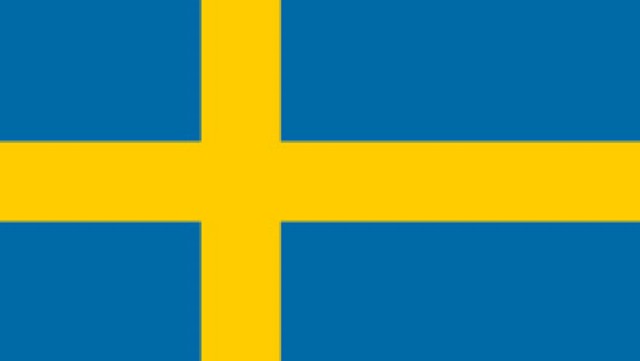
Country Sheet
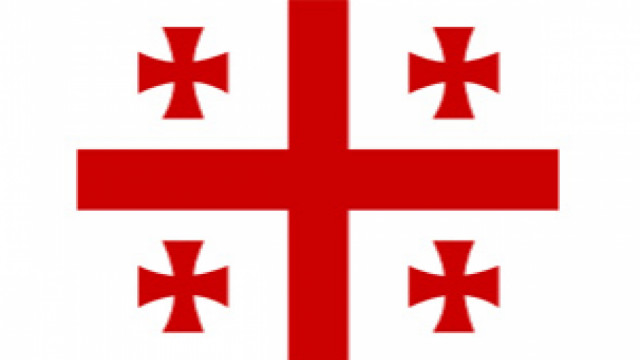
Country Sheet
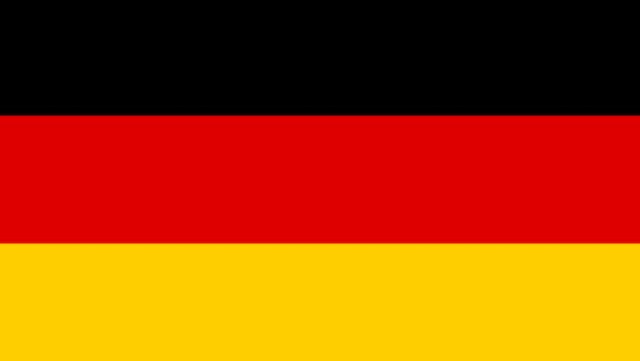
Country Sheet
